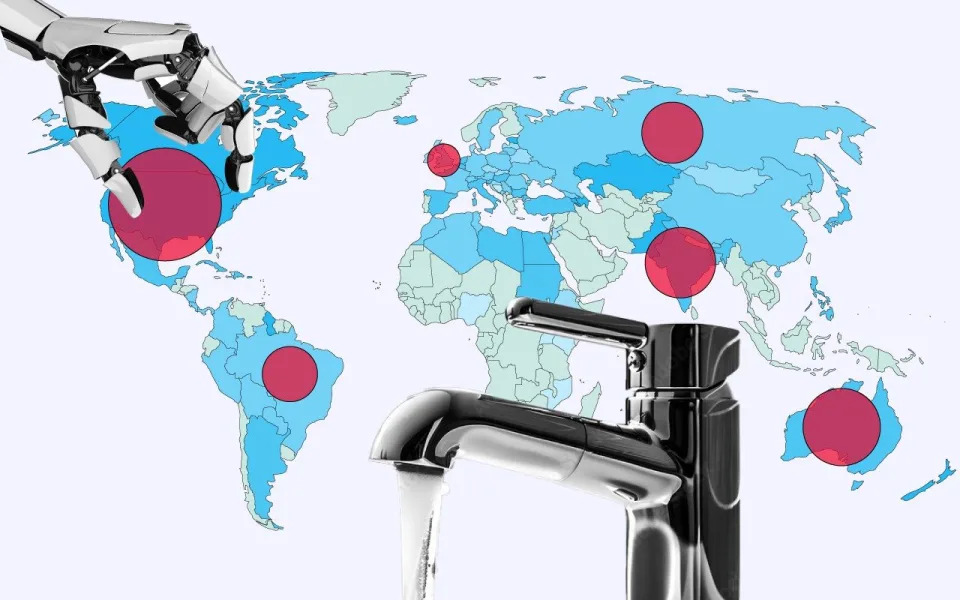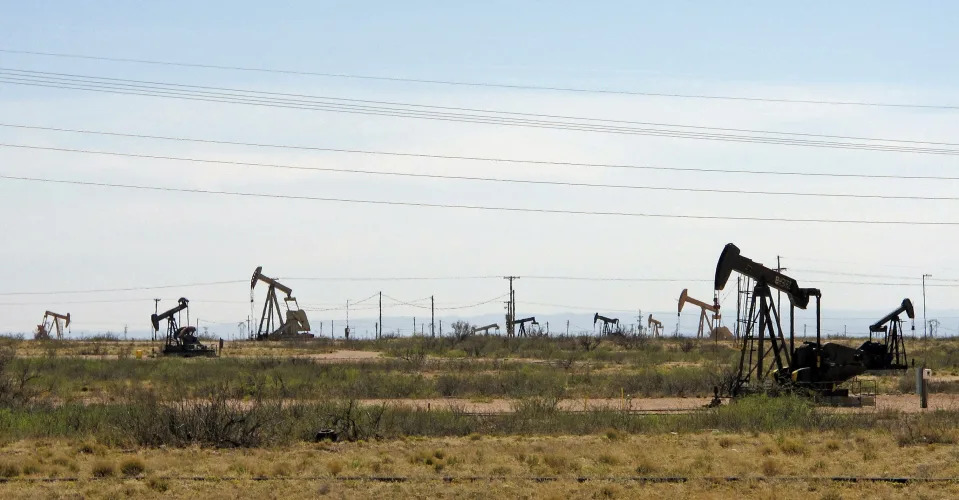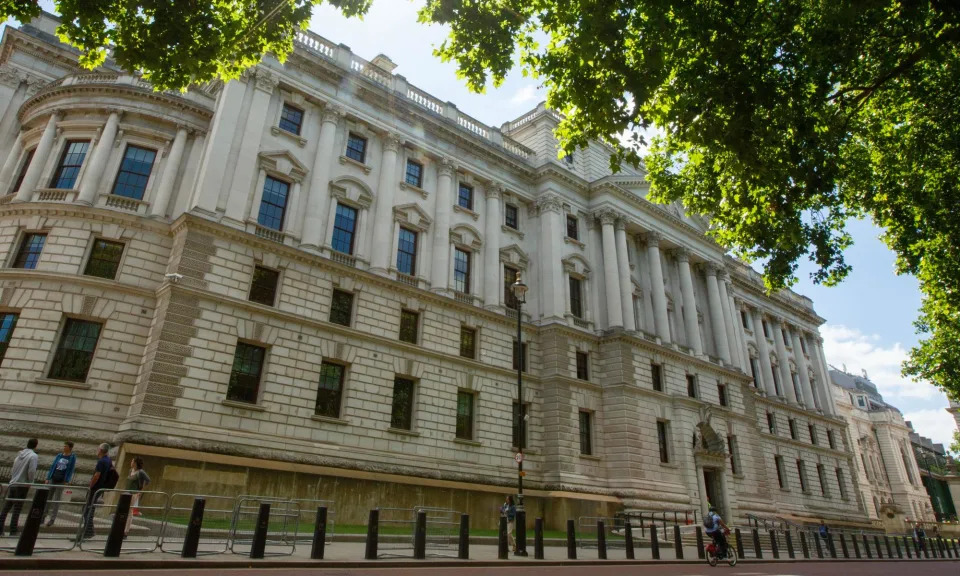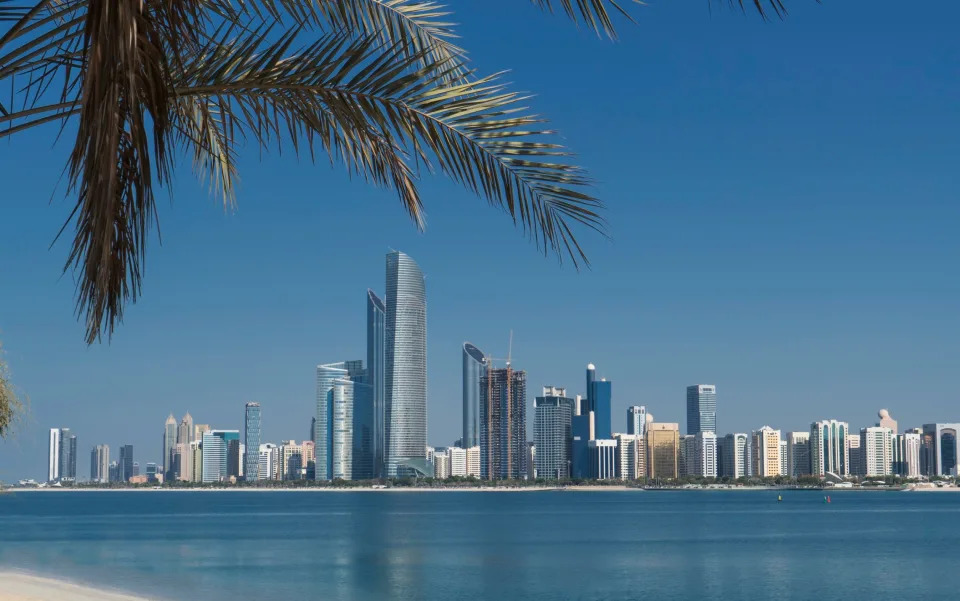Silicon Valley’s dark sustainability secret
Szu Ping Chan
Thu, 28 December 2023

Silicon Valley
ChatGPT is thirsty. Every time you give it a command, it “drinks” the equivalent of a sip of water. Twenty tasks later and it has already consumed half a litre of the stuff.
That’s because cooling the data centres that power it and other artificial intelligence (AI) tools is a huge task, and one that risks exacerbating a looming water crisis.
It may sound implausible. After all, 75pc of the Earth is covered in water. However, freshwater accounts for just 3pc, and of that, 69pc is locked away in glaciers, 30pc is underground and around 1pc is in lakes, rivers and swamps.
In short, less than 1pc can be used to drink or to irrigate crops.
Demand for water has increased by around 40pc over the past four decades and is estimated to rise by a further 25pc by 2050. At the same time, supply has halved since 1970 as the global population continues to rise, according to the World Bank.
Bank of America (BofA) recently blamed this trend on an era of “hyper consumption”. After all, it takes more than 2,500 litres of water to make a single cotton t-shirt and 24 bathtubs to extract and wash a ton of coal.
When it comes to technology, it’s not just ChatGPT that’s leaving the world parched.
The pandemic triggered a surge in demand for data-intensive services as meetings went virtual and streaming services became regular Friday night entertainment, sparking a flurry of new centres being built by some of the world’s biggest tech companies.
The rise of the semiconductor in everything from cars to toasters has also pushed up water consumption. The average semiconductor factory uses the same amount of daily water as a town roughly the size of Loughborough or Welwyn Garden City.
Google disclosed that its global data centres alone consumed approximately 21.1bn litres of water in 2022, equivalent to the water needed to maintain 37 US golf courses.
While farming and energy are the most water intensive sectors, technology is catching up.
Data centres are the tenth largest water consumer in the US, according to BofA.
And while Google replenished enough water last year to fill 400 Olympic-sized swimming pools, that’s only 6pc of its freshwater consumption last year.
In fact, water demand is expected to almost double from just over 250m gallons per day in 2020 to almost 500m by the end of the decade.
Shaolei Ren, an associate professor of electrical and computer engineering at the University of California says solutions such as using seawater are easier said than done because the liquid used to cool these data centres must also be purified.
“If the water isn’t clean, it will contain bacteria that’s bad for the environment,” he says. “Saltwater also corrodes cooling pipes.”
BofA recently warned that the world could run out of freshwater by 2040, leaving a third of global GDP exposed to negative shocks from water scarcity and a potential 6pc decline amid increases in health risks, migration and inequality.
While economists argue that technology is ultimately the solution, not the problem, tensions are increasingly starting to arise when companies clash with local communities seeking to preserve water because of droughts.
Research by ING showed that in 2022, 23pc of Microsoft’s and 18pc of Google’s freshwater withdrawals originated in areas of water stress, where demand exceeds the available amount over a period.
In the US, which hosts about 25pc of all global data centres, a mid-sized data centre uses about 300,000 gallons (1.3 million litres) of water every day, which ING says is equal to the water consumption of 100,000 homes.
Coco Zhang, an economist at ING, said: “This means that to continue using water to cool data centres, companies need to enhance water usage efficiency and minimise the risk from droughts. They must also properly manage relationships with the local community for large amounts of water consumption.”

Research shows that 23pc of Microsoft’s freshwater withdrawals originate in areas of water stress
Ren says public awareness of the issue is rising. “I think we’re going to see more clashes as this issue becomes more public,” he says.
He adds that one of the problems is the way many companies take water out of the system.
Companies can either use expensive traditional air conditioning to cool their servers, or they can deploy evaporative cooling, using water.
The problem with the latter is that the water that is used can’t simply be recycled like water used for a shower.
“When we take a shower the technical name for that is water withdrawal because it is discharged back to the sewage system and it goes back to the public water utilities,” Ren says.
“But just like when people sweat to cool down and our body heat is released to the environment, when you use water to cool down a data centre, they use water evaporation to cool down the system and remove the heat from the data centre.
“But that means the water isn’t there in liquid form to be used again.”
Shortages mean companies are already considering restricting water usage. In the UK, Thames Water said this summer that it was considering bringing in measures that would restrict data centres’ water usage during peak times in order to ease pressure on supply during hot weather.
Companies insist they are taking action. Some decisions are based on geography. Facebook owner Meta has built data centres in the chillier climes of Oregon and Lulea, Sweden, near the Arctic Circle to take advantage of the colder temperatures.
Google is slowly taking the opposite approach. While you’d probably need to wear a jacket to visit most data centres, Ren says most people would find it more comfortable wearing a pair of shorts when inside a Google location.
Servers here operate at higher temperatures because they all serve the same master, says Ren, unlike so-called colocation facilities where hundreds of different companies can rent space and bandwidth, and where not all equipment is the same.
This allows Google to run its centres more efficiently at around 27 degrees celsius compared to a norm of 21 degrees or even lower.
Google also has 38 water replenishment projects around the world, including one in the UK that intercepts and filters water at Chinbrook Meadows park on the River Quaggy in south London before it enters the Thames.
Microsoft, which has invested billions in ChatGPT creator Open AI, has also changed the way it uses water.
For example, its data centre in Sweden harvests rainwater to use, while the servers are cooled solely with outside air. It is also adapting its data centres in Arizona to use less water after concerns were raised by local communities.
A spokesman says: “We approach our water conservation efforts in our data centres in multiple ways, including applying new technologies to measure water use, and new ways to cool the servers, including liquid cooling and adiabatic cooling, a technology that uses outside air instead of water for cooling, when temperatures are below 85 degrees fahrenheit (29C).”
Both Google and Microsoft have committed to replenishing more water than they consume by 2030, but water use is likely to keep rising in the short term.

Google’s servers operate at higher temperatures than other tech companies’ – 27 degrees compared to a usual 21 – because it says this is more efficient
- JOHN G MABANGLO/EPA-EFE/Shutterstock
Haim Israel, a global strategist at BofA, says we need not be pessimistic. “The world can definitely meet demand. There is enough water on the planet, but up until now there has not been enough investment.”
BofA believes solving the threat of water scarcity across the globe and beyond technology will cost around $1trillion a year to 2030. It’s a big number in a world where debts are already mounting, but Israel highlights this equates to just 1pc of global GDP.
Israel says: “With urbanisation, an increasing number of people on the planet, industrialisation, consumption and now technology that’s been thrown into the equation over the past couple of years, water supply is going down very, very fast.
“We have the solutions today. We just need governments to get into crisis mode. And start investing in them.”
He says solutions are often just about getting back to basics. “Today a third of all global water is lost because of leaking pipes and ageing infrastructure, Israel adds. “It’s massive. In the US the ageing infrastructure is roughly 50 years old. In some places it’s 100 years old, and a water main breaks every two minutes, leading to the loss of 18pc of freshwater supply.”.
With artificial intelligence often touted as the key to unlocking a new wave of productivity gain, Israel adds that the cost of inaction is particularly high.
“We live in a world of scarcity,” he says. “And the world of scarcity is also the world of not enough. I don’t think that we are going to run out of anything. But there will be an imbalance of supply and demand in the coming years that could leave global GDP in jeopardy.”
Haim Israel, a global strategist at BofA, says we need not be pessimistic. “The world can definitely meet demand. There is enough water on the planet, but up until now there has not been enough investment.”
BofA believes solving the threat of water scarcity across the globe and beyond technology will cost around $1trillion a year to 2030. It’s a big number in a world where debts are already mounting, but Israel highlights this equates to just 1pc of global GDP.
Israel says: “With urbanisation, an increasing number of people on the planet, industrialisation, consumption and now technology that’s been thrown into the equation over the past couple of years, water supply is going down very, very fast.
“We have the solutions today. We just need governments to get into crisis mode. And start investing in them.”
He says solutions are often just about getting back to basics. “Today a third of all global water is lost because of leaking pipes and ageing infrastructure, Israel adds. “It’s massive. In the US the ageing infrastructure is roughly 50 years old. In some places it’s 100 years old, and a water main breaks every two minutes, leading to the loss of 18pc of freshwater supply.”.
With artificial intelligence often touted as the key to unlocking a new wave of productivity gain, Israel adds that the cost of inaction is particularly high.
“We live in a world of scarcity,” he says. “And the world of scarcity is also the world of not enough. I don’t think that we are going to run out of anything. But there will be an imbalance of supply and demand in the coming years that could leave global GDP in jeopardy.”
















